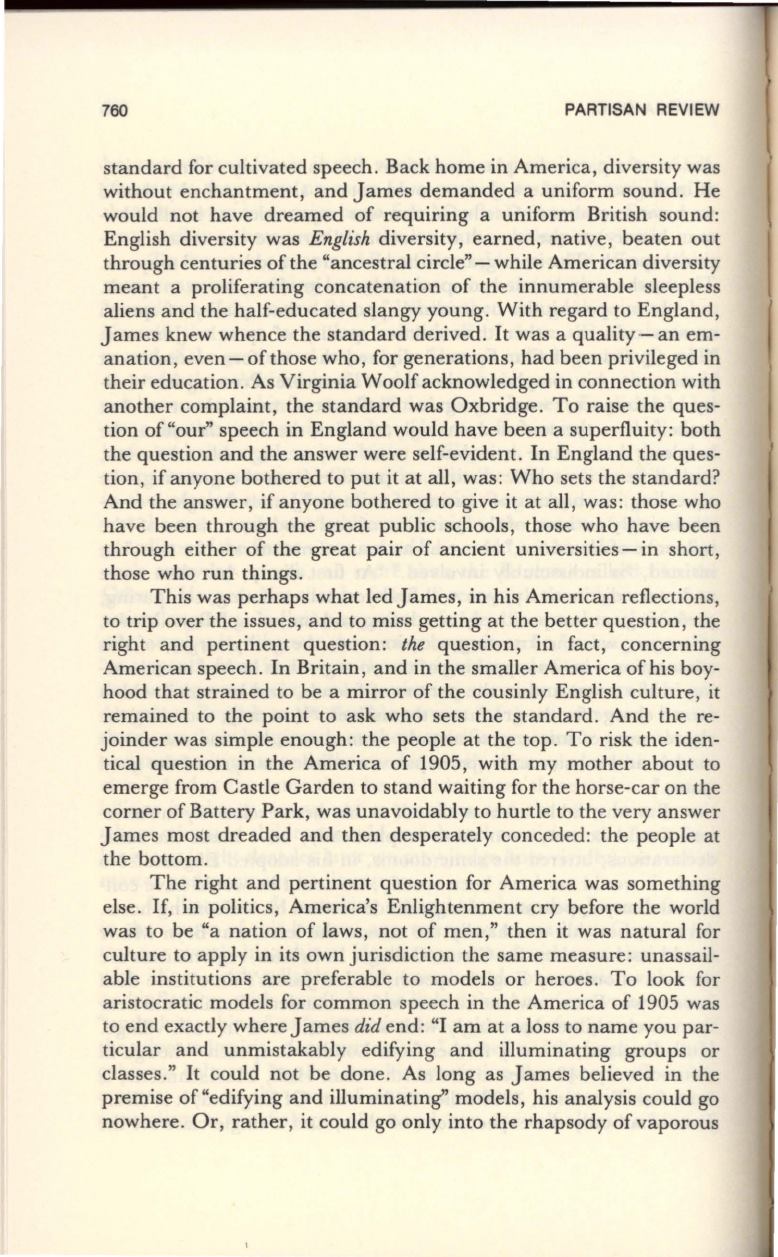
760
PARTISAN REVIEW
standard for cultivated speech. Back home in America , diversity was
without enchantment, and James demanded a uniform sound. He
would not have dreamed of requiring a uniform British sound:
English diversity was
English
diversity, earned, native, beaten out
through centuries of the "ancestral circle"- while American diversity
meant a proliferating concatenation of the innumerable sleepless
aliens and the half-educated slangy young. With regard to England,
James knew whence the standard derived.
It
was a quality ·- an em–
anation, even-ofthose who, for generations, had been privileged in
their education. As Virginia Woolf acknowledged in connection with
another complaint, the standard was Oxbridge. To raise the ques–
tion of "our" speech in England would have been a superfluity : both
the question and the answer were self-evident . In England the ques–
tion, if anyone bothered to put it at all, was: Who sets the standard?
And the answer, if anyone bothered to give it at all , was : those who
have been through the great public schools, those who have been
through either of the great pair of ancient universities- in short,
those who run things.
This was perhaps what led James, in his American reflections,
to trip over the issues, and to miss getting at the better question , the
right and pertinent question :
the
question, in fact, concerning
American speech. In Britain, and in the smaller America of his boy–
hood that strained to be a mirror of the cousinly English culture, it
remained to the point to ask who sets the standard. And the re–
joinder was simple enough: the people at the top . To risk the iden–
tical question in the America of 1905, with my mother about to
emerge from Castle Garden to stand waiting for the horse-car on the
corner of Battery Park, was unavoidably to hurtle to the very answer
James most dreaded and then desperately conceded: the people at
the bottom.
The right and pertinent question for America was something
else. If, in politics, America's Enlightenment cry before the world
was to be "a nation of laws, not of men," then it was natural for
culture to apply in its own jurisdiction the same measure: unassail–
able institutions are preferable to models or heroes. To look for
aristocratic models for common speech in the America of 1905 was
to end exactly where James
did
end: "I am at a loss to name you par–
ticular and unmistakably edifying and illuminating groups or
classes." It could not be done . As long as James believed in the
premise of "edifying and illuminating" models, his analysis could go
nowhere . Or, rather, it could go only into the rhapsody of vaporous


